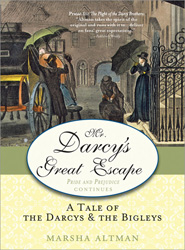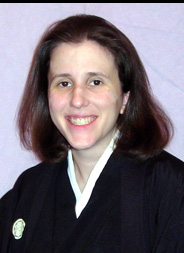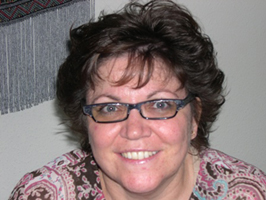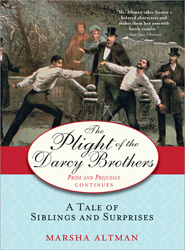Review: Recollections of Rosings by Rebecca Ann Collins
Posted in Reading, Review on March 3rd, 2010 Recollections of Rosings by Rebecca Ann Collins is book 8 of The Pemberley Chronicles. (Published by Sourcebooks, ISBN: 978-1-4022-2450-8, 336 pages, $14.99 US/$17.99 CAN/£7.99 UK)
Recollections of Rosings by Rebecca Ann Collins is book 8 of The Pemberley Chronicles. (Published by Sourcebooks, ISBN: 978-1-4022-2450-8, 336 pages, $14.99 US/$17.99 CAN/£7.99 UK)
While this is book 8, I found it fairly easy to get into. This is only the second book in the series that I’ve read. I reviewed Postscripts from Pemberly back in December 2009. If you’ve read Pride and Prejudice, you’ve got an understanding of the major characters. And while these characters have moved on, had children, had their children marry, lost loved ones — reading Collins’ work is like dropping in on a huge family reunion after being out of touch for a long while. The books, or at least the ones that I’ve read have an Appendix that lists the major characters and the relationships between them.
I’m starting by pointing this out because there’s a relaxed atmosphere about the stores in Postscripts… and now Recollections…. Collins has a way of presenting the stories partly through the type of narrative/interactive story you’d expect, but she also uses journal or diary entries and letters to help us get a deeper understanding of the characters that have a major part to play. This makes reading the books a lot like being asked to read someone’s personal journal when you know all the people involved (society pages without the cattiness).
Recollections of Rosings is, as you’ve probably guessed about Rosings, the major residence of Lady Catherine de Bourgh. Lady Catherine has been gone for sometime and the estate is run by a board of trustees on which Fitzwilliam Darcy serves. The story opens with the terrible news that there has been a fire at Rosings that has caused considerable damage. The current Vicar, Mr. Harrison, suffers a heart attack and his continuing illness causes some drastic changes to his situation for himself and his family. His wife Catherine, one of Charlotte and Mr. Collins’ daughters, is now caring for her husband and dealing with her grief over the damage done to Rosings where she lived when Lady Catherine took her in as a young child to be a companion for Anne.
The Rosings estate has recently hired a curator to deal with the historic artwork and others treasures of Rosings. Luckily he had done much of the work to catalog what was in the house and it will be useful to the board in determining their loss and what can and should be done to rebuild. That he is also someone who had worked at Rosings while Catherine lived with Lady Catherine helps to bring back many memories and releasing many emotions of her childhood and early adulthood before her marriage.
Meanwhile, Catherine’s daughter seems to be falling in love with a young man in the neighborhood that few people know anything about other than he’s a gentleman and very good at his job. Beck Tate, Catherine’s sister, is at loose ends as her husband has gone to America on business, leaving her behind. Unfortunately for Catherine, Becky feels it is her duty to watch out for her supposedly more naive and unsophisticated sister.
That sets out the parameters of the book, but the journey and the experience of reading it yourself is the frosting on the cake. Collins is not flamboyant — the writing is very reminiscent of sitting about with a best friend talking about family, friends, what is happening with the neighbors, what’s going on, what can be done to make life better for those around you — and yourself, of course.
That’s not to say that you won’t shed tears, laugh out loud, try to get characters to look before they leap, get angry about how some are treated, wonder why other won’t mind their own business, and smile because sometimes love does conquer all. And best of all, for some people there are second chances and, while they don’t come often, when they happen you should not stand and watch them pass you by but reach out for new dreams and a new life.
There’s a very comfortable feel to The Pemberly Chronicles. These are people most of us have spent a lot of time with. Austen created characters that still resonant with us so many years after she wrote her books. That Austen often left her characters just as the leave they church after their wedding, it’s no wonder that so many of us want to know what happened next. Rebecca Ann Collins gives us one possible future — it’s a comfortable one that we can relate too that differs only in degree from the future we see around us for our friends and family.
These are wonderful books for a rainy day — or any day — when you want to believe that people are good at heart and that families stand together in times of trouble. These are books that continue the story of some well loved characters but they are also books of hope and of dreams of communities that many of us would like to live in.

 ABOUT THE AUTHOR:
ABOUT THE AUTHOR: Monica Fairview, author of The Other Mr Darcy, was gracious enough to answer a few questions allow me to share her answers. Her book was released on October 1st and is now in stores. I reviewed
Monica Fairview, author of The Other Mr Darcy, was gracious enough to answer a few questions allow me to share her answers. Her book was released on October 1st and is now in stores. I reviewed 

 A prime example is the first book, which got a lot of criticism for having Darcy be a lush and therefore the butt of several jokes while in college. I didn’t think making Darcy a lush was at all negative to his character. You work up a tolerance for alcohol by drinking a lot, and Regency gentlemen drank more than a lot. The idea that Darcy has a lower tolerance means that he is very conservative in his alcohol consumption, perhaps fearing that a slovenly image would harm his family name (which is so clearly important to him in Austen’s work), and as a result he doesn’t have much of a tolerance compared to his peers, so when he does drink, he gets very drunk quickly. Since Darcy lives on his high horse, his college friends (and Wickham, of course) take any advantage they can get to knock him off it. In other words, he’s so virtuous that people enjoy seeing him knocked down a peg, albeit in a friendly way. I felt it was an amusing way to soften Darcy, but some readers didn’t agree, as Darcy is not supposed to be ridiculous. I can see their point, but it’s the story I wanted to write, so I wrote it.
A prime example is the first book, which got a lot of criticism for having Darcy be a lush and therefore the butt of several jokes while in college. I didn’t think making Darcy a lush was at all negative to his character. You work up a tolerance for alcohol by drinking a lot, and Regency gentlemen drank more than a lot. The idea that Darcy has a lower tolerance means that he is very conservative in his alcohol consumption, perhaps fearing that a slovenly image would harm his family name (which is so clearly important to him in Austen’s work), and as a result he doesn’t have much of a tolerance compared to his peers, so when he does drink, he gets very drunk quickly. Since Darcy lives on his high horse, his college friends (and Wickham, of course) take any advantage they can get to knock him off it. In other words, he’s so virtuous that people enjoy seeing him knocked down a peg, albeit in a friendly way. I felt it was an amusing way to soften Darcy, but some readers didn’t agree, as Darcy is not supposed to be ridiculous. I can see their point, but it’s the story I wanted to write, so I wrote it.